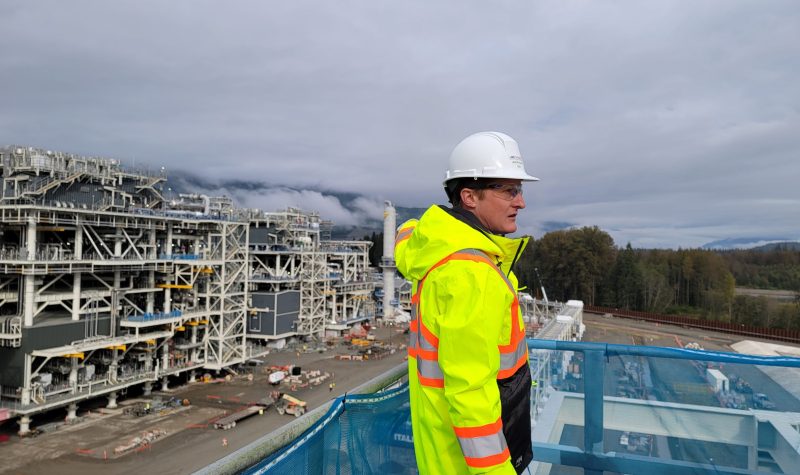Recently, LNG Canada announced that they are now past the 70 per cent completion mark of the liquefied natural gas export terminal project. CEO Jason Klein discussed some of the impacts that the LNG build has had on Kitimat and surrounding communities at a site walkthrough on Sept. 28.
When considering impacts, one of the main points that Klein mentioned is the population change that both Terrace and Kitimat have faced since the start of construction on the site in 2017. According to Statistics Canada, Terrace saw a population increase from 11,643 in 2016 to 12,017 in 2021. Kitimat saw a decrease from 6,822 to 6,727.
Along with this discussion, Klein talked about a workforce peak being hit next year. Once all the remaining modules are received, there will be an estimated 2,000 person increase in total workers to test and work on the 191 modules that will be used in the facility.
According to the District of Kitimat in a 2021 report, the resale price for a house at the end of 2020 was 28 per cent higher than it was before the Final Investment Decision for the LNG Canada project, which was finalized in 2018.
Klein talked about mitigating the impact on healthcare and infrastructure by trying to encourage workers to stay at the Cedar Valley Lodge and investing over $10 million into different infrastructure projects in Terrace and Kitimat.
Elected Chief Councilor Crystal Smith explained that due to the partnership between the Haisla Nation and LNG, part of the population growth comes from Haisla members returning to Kitimat for the employment opportunities offered by LNG Canada.
Smith also described that through the revenue from the Impact Benefit Agreement, they have been able to establish a department for language and culture revitalization in the community.
The Haisla Nation has also said that they were able to establish the Cedar LNG project due to the agreement with LNG Canada which gives them the opportunity to build capacity on the Coastal GasLink which transports the LNG across B.C. via pipeline.
Listen to the CFNR story with Jason Klein and Crystal Smith below:


